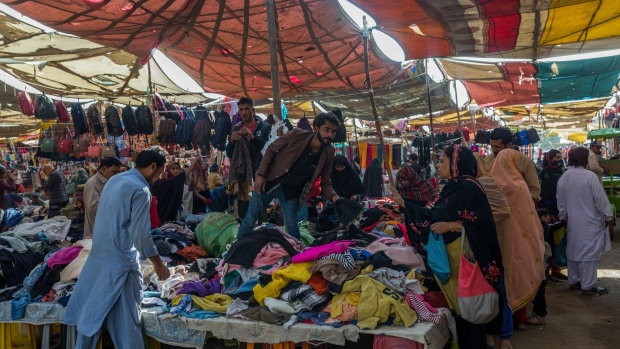May 2, 2024
Pakistan Inflation Eases for a Fourth Month on Record Rates
, Bloomberg News

(Bloomberg) -- Pakistan’s inflation slowed in April for the fourth straight month as record borrowing costs reined in economic growth and domestic demand.
Consumer prices rose 17.34% from a year ago, according to data released by the Pakistan Bureau of Statistics on Thursday. That compares with a median estimate for a 17.6% gain in a Bloomberg survey and 20.68% in March.
The easing pace of price gains is in part due to the base effect of surging inflation last year. It is in line with the State Bank of Pakistan’s forecast that inflation will continue to moderate unless the government hikes taxes and energy costs or prices soar unexpectedly in the global market.
The monetary authority kept the benchmark interest rate at a record for its seventh meeting in a row on Monday, targeting to bring down Asia’s fastest inflation to 5%-7% by late next year.
Prime Minister Shehbaz Sharif’s administration is due to hold talks later this month with the International Monetary Fund on a fresh loan package which is likely to entail strict fiscal and monetary measures to reboot Pakistan’s economy. Sharif promised the lender that he will ensure strict fiscal discipline.
Pakistanis have already seen prices for everyday items such as rice, wheat and sugar doubled in the past three years.
The latest data from the statistics bureau showed food costs rose 3.9% in April from a year ago compared with decrease of 0.91% last month. Transport prices climbed 0.95%, while housing costs increased by 6.64%.
©2024 Bloomberg L.P.






